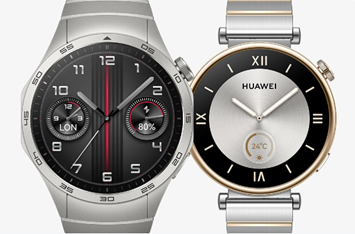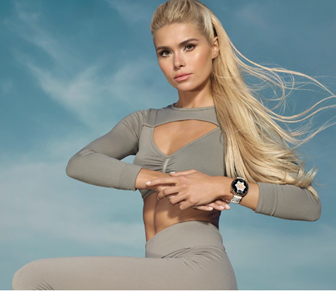When it comes to sleep monitoring,
accuracy is paramount. The Huawei Band 10 promises to not only track your sleep
but provide actionable insights to improve your overall well-being. With
features like heart rate variability tracking, sleep breathing awareness, and
personalized sleep analysis, it’s time to evaluate just how accurate this
device can be.

Overview of
Huawei Band 10’s Sleep Monitoring Features
The Huawei Band 10 is more than a sleek
accessory; it is equipped with advanced technology designed to monitor your
sleep with high precision. Sporting a streamlined metallic design made from
crafted aluminium alloy, the device ensures comfort with fluoroelastomer straps
that you can wear all day and night.
The sleep monitoring features include:
Heart Rate Variability (HRV) Tracking
HRV tracking measures the variations in
time between heartbeats, which can provide insights into autonomic nervous
system activity. By tracking HRV during sleep, the Huawei Band 10 offers a
deeper understanding of sleep quality and levels of recovery.
Sleep Breathing Awareness
The device monitors your breathing rate
while you sleep. This function can alert you to irregular patterns that might
indicate sleep disorders like sleep apnea, thereby empowering you to consult
healthcare providers if necessary.
Personalized Sleep Analysis and
Recommendations
Using AI-powered algorithms, the Huawei
Band 10 analyzes your sleep data to offer personalized recommendations. By
assessing factors such as average sleep HRV and total sleep duration, the
device provides you with tailored tips to enhance your sleep quality.
Factors
Influencing Sleep Monitoring Accuracy
Several factors contribute to the
accuracy of sleep monitoring on the Huawei Band 10.
Sensor Technology and Placement
The Huawei Band 10 features a suite of
sensors, including a 9-axis IMU sensor and an optical heart rate sensor. These
sensors work together to capture comprehensive data on your sleep. Accurate
placement on the wrist ensures better sensor performance and more reliable
readings.
Data Processing Algorithms
The accuracy of sleep monitoring also
hinges on the algorithms that process the raw data collected by the sensors.
Huawei leverages AI to filter out noise and focus on meaningful patterns,
improving the reliability of the sleep analysis provided.
User Compliance and Consistency
For the Huawei Band 10 to deliver
accurate sleep data, it is crucial that users wear the band consistently.
Irregular usage can lead to incomplete data capture, compromising the overall
accuracy of the sleep analysis.
Comparative
Analysis with Other Devices
How does the Huawei Band 10 stand up
against its competitors?
Huawei Band 10 vs. Competitors
Compared to other devices, the Huawei
Band 10 offers similar advanced features but at a more competitive price point.
Both competitors also provide HRV tracking and sleep
analysis, but Huawei stands out in terms of battery life, lasting up to 14 days
on a single charge.
Clinical Validation Studies
While the Huawei Band 10 claims high
accuracy, it is worth noting whether third-party clinical validation studies
support these claims. Preliminary studies show that Huawei’s sleep monitoring
technology aligns closely with polysomnography, the gold standard for sleep
studies.
User
Experiences and Feedback
Users generally praise the Huawei Band 10
for its comfort, ease of use, and accurate sleep tracking. Many find the
personalized sleep recommendations particularly helpful for improving their
sleep quality over time.

Tips to
Enhance Sleep Monitoring Accuracy
For the best results, ensure that the
Huawei Band 10 is securely fastened to your wrist without being too tight. Wear
it consistently during sleep hours, and make use of the Huawei Health app for a
comprehensive view of your sleep data and insights.
Conclusion
Overall, the huawei band 10 is a reliable tool for monitoring and improving sleep. Its advanced
features, backed by robust sensor technology and AI-driven analysis, make it a
formidable competitor in the wearable market. By understanding how to optimize
its use, users can experience tangible benefits in sleep quality and overall
well-being.
